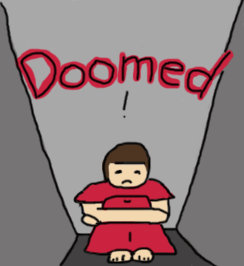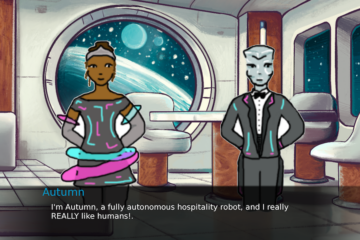Fellow Cajun Sushi Hamster Tobias Buckell decided to host a writing workshop at the college where he worked. He invited an editor to lead it and got six or so aspiring authors like myself to attend.
I was the only girl, which made me very nervous.
I submitted a story I’d been working on and having no luck with – the story I felt needed the most work. I found out the other guys had sent in their stories that needed the LEAST work. Well, that helped me look competent and equal.
My story was very slice-of-life. It was about a young woman around my own age trying to find her place in the world – gainful employment – with a near-future SF premise in the background. “It has no plot,” everyone said.
“I’m not good at plot,” I said.
The Editor, who shall remain anonymous by virtue of my forgetting his name and hating him forever, said, “Well, you’re not a writer, then.”
“But… what do I DO?”
He said: There are other ways to write. Journalism. Technical writing. Poetry.
(What I heard was: You will never be more successful than you are right now, you talentless hack.)
The Editor dispensed wisdom to the others for a while longer, then excused himself for the night. There was an awkward silence.
Then, another of the workshop participants – I will never forget him, his quiet hesitation before talking – said, “One plot would be: Person has a problem. They try to solve it and fail. They try to solve it and fail. They try to solve it and succeed.”
 |
|
That night, I re-wrote my story from scratch, following this formula. The next morning, when I showed it to the guys, they said:
“Well, it has a plot.”
Plot is not magic. It is a skill like any other and requires study. Once I saw it for what it was, once I isolated it and practiced with a tried formula, plot became just another thing I could do, like dialog or character.
Dude, if you read this and remember, I owe you a beer or fifty.
[Read here about how this story eventually sold! ]



